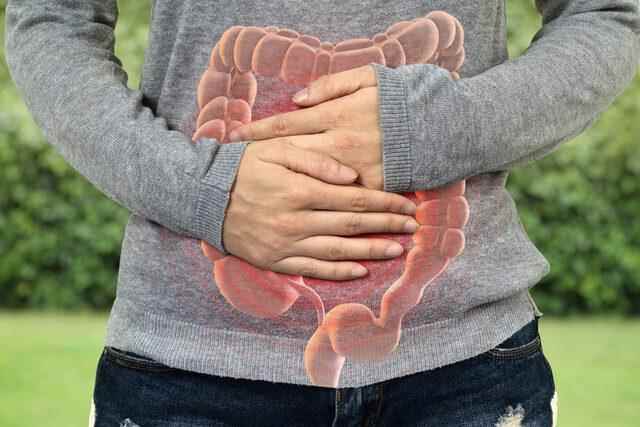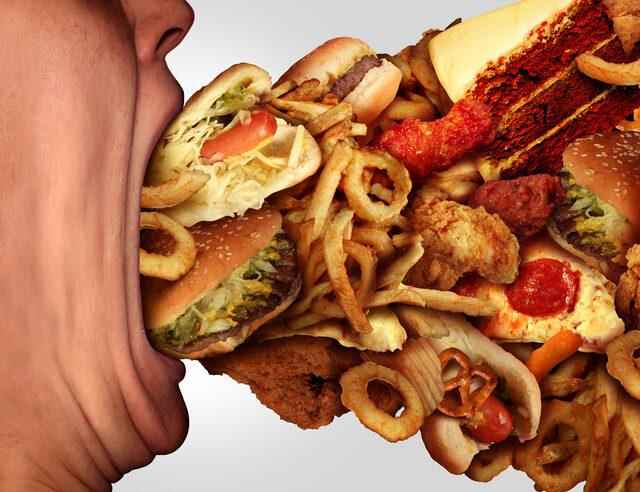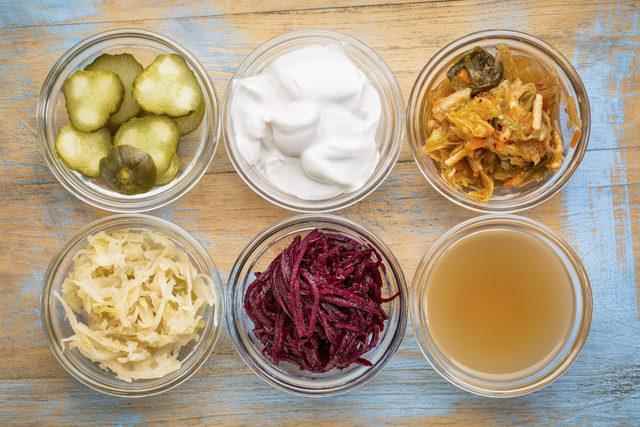The intestines play a huge role in the body. Apart from digestion, they are also responsible for the immune system and many other functions in the body. However, modern lifestyles often place a huge stress load on the gut.
Having a healthy gut is more important than you might think. A healthy gut flora can even extend lifespan. The intestines contain most of the immune cells. In addition, gut bacteria produce three essential B vitamins: biotin, folic acid, and vitamin B12.
The condition of the intestines affects the absorption of nutrients, which affects the immune system and overall health. Intestines balanced with good bacteria effectively protect the body against infections, colds and various diseases. In case of an imbalance in the intestinal flora, the body loses its ability to fight the bad bacteria that cause disease.

Research shows that an imbalance of gut flora can affect the development of a variety of health problems, including diabetes, cardiovascular disease, and weakened immunity.
EATING BEFORE BED
A common cause of intestinal problems such as acid reflux, heartburn, and even gastroesophageal reflux disease (GERD) is going to bed right after a meal. Meals should be eaten 2 to 3 hours before going to bed and lying down after meals should be avoided.

If your meal is high in fat and carbohydrates, it should be eaten 4 to 6 hours before bedtime and portions should be reduced. Foods such as high-fat foods, caffeine, chocolate, spicy foods, peppermint, alcohol, and tobacco can disrupt the function of the lower esophageal sphincter, causing the acidic contents of the stomach to enter the esophagus. To identify your such triggers, you can keep a diary and choose healthy foods that improve intestinal transit.
EAT
Have you ever noticed that you feel uncomfortable after eating too much and at the same time you suddenly start to run out of energy? This is because the intestines are overloaded.

In such cases, the intestines try to digest a large amount of food, so the body directs all its energy to digestion. Overeating is a huge burden for the intestines.
DRINK LITTLE WATER
The intestines need a lot of fluid to function normally. About four liters of fluid are stored in the large intestine. If too little fluid is taken, the body pulls the fluid from there, which can lead to many problems such as constipation and even intestinal obstruction.
CONSUMING VERY LITTLE FIBER
Fiber is what ensures healthy and efficient digestion. In case of very little consumption, it can cause indigestion and fatigue. Eating more fiber and drinking more water facilitates intestinal transit and prevents constipation.
CONSUMING TOO SUGAR
There is nothing wrong with eating sweets, but consumption within normal limits is essential. Taking too much sugar causes inflammation in the body and also disrupts the digestive system.

Sugar has a bad effect on the intestinal flora, which can lead to digestive problems.
CONSUMING PROCESSED FOOD
Bakery products, salami, sausage, packaged spreads… Processed foods contain a lot of salt, sugar and unhealthy fats. All this has a bad effect on the intestinal flora and, accordingly, on the functioning of digestion.
USING ANTIBIOTICS
Antibiotics can profoundly alter the intestinal flora, limit microbial diversity and even affect the capacity of bacteria. Antibiotics should be used only when necessary. For example, it should not be used for a simple cold, but should be taken with probiotics with proven effectiveness, if there is a risk of causing diarrhea.
CONSUMING TOO MUCH FATTY FOOD
In addition to the consequences of this bad habit, such as weight gain, fatty foods can trigger the formation of gallstones. According to experts, cholesterol-related gallstones occur when the liver secretes more cholesterol than bile juice can dissolve. High blood cholesterol is associated with obesity, which is linked to greater production and excretion of cholesterol in the bile. Along with the genetic factors that contribute to gallstones, consuming less saturated fat can help prevent them and therefore reduce the burden on the gut.
NOT CONSUMING PROBIOTICS
Probiotics can relieve stomach and intestinal ailments such as bloating, gas, constipation, diarrhea and even reflux. Taking probiotics daily supports gut flora and boosts overall health by stimulating digestion, vitamin production, mineral absorption, immune system and metabolism. Intestinal flora includes good bacteria that have an impact on digestive health and are derived from fermented foods such as yogurt, sauerkraut or kefir.

USE OF ALCOHOL AND SMOKING
It is known that regular alcohol consumption and smoking also increase the risk of colon cancer by damaging the intestines. As the body metabolizes alcohol, it produces carcinogens that can accumulate in the gut and damage cellular DNA. The same is true for tobacco, whose toxic substances in cigarette smoke come into direct contact with many organs, including the large intestine.
5 WAYS TO IMPROVE GUEST HEALTH
According to hundreds of studies, there are many habits that will help the intestines stay healthy, maintain their functions, and therefore extend their lifespan.
CONSUMING MORE FIBER
Nutrition for intestinal flora starts with fiber. It is important to consume fiber-rich grains, fruits, and vegetables to improve gut health. Fiber creates a strong barrier that reduces inflammation and protects the body from toxins while feeding beneficial bacteria.
NOT consuming WHITE BREAD
Reducing the intake of refined flour and sugary foods plays an important role in gut health. Avoid white bread, pastries and sweets and replace them with foods such as whole grains, brown rice and legumes.

INCREASE FERMENTED FOOD CONSUMPTION
Sauerkraut, kefir and yogurt are rich in beneficial microorganisms, so experts recommend adding at least one serving of these foods to your daily diet. They provide beneficial probiotics while lowering intestinal pH and make the intestinal flora a dangerous environment for harmful bacteria.
REDUCING RED MEAT CONSUMPTION
If you eat red meat often, your intestinal flora may be damaged. The more animal protein ingested, the more the behavior of inflammatory bacteria changes. Also, keep in mind that many meat products, such as salami and sausage, are processed to contain additives and preservatives that destroy healthy bacteria.
FOLLOW MEALS REGULARLY
Another way to improve gut health is to follow regular and frequent meals. Studies show that regular meals affect the condition of bacteria in the gut. If you take in the majority of your daily calories in the morning and reduce your food intake in the afternoon and evening, you can improve cell regeneration and the functioning of the digestive system.
